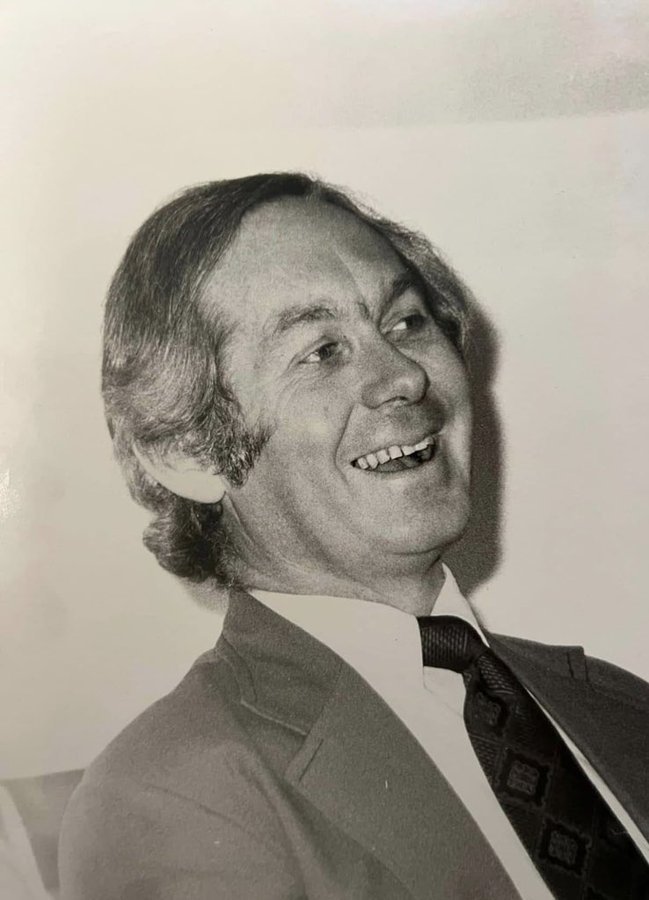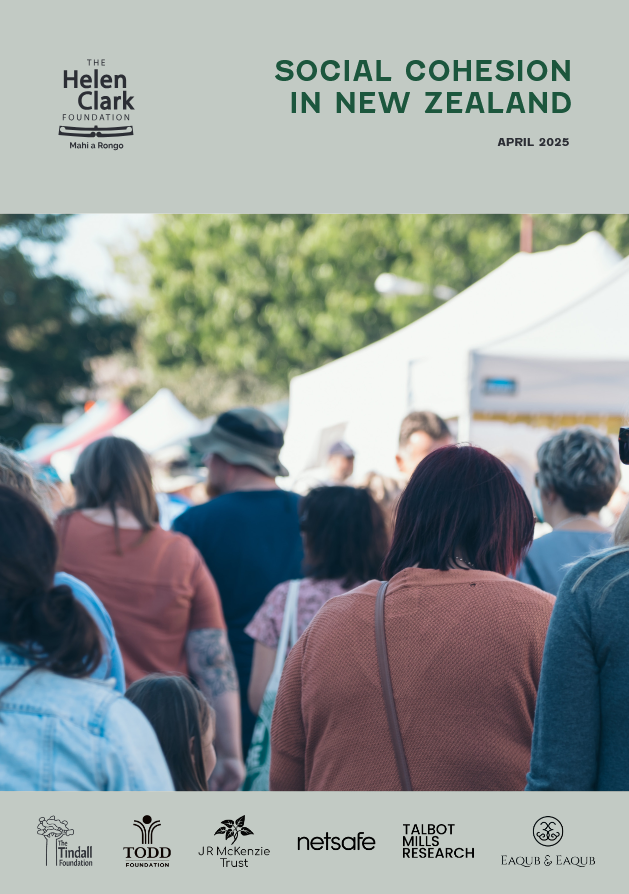Helen Clark's Newsletter - January - April 2025
Would you like to receive my newsletter directly in your inbox?
The first four months of this year have been highly disruptive globally. When the new Administration in the United States took office, a series of decisions across geopolitics, international development, bilateral relations, trade, and health have had global impact. US domestic policy has also seen dramatic change, along with ways of implementing it, to the extent that one can seriously suggest that there is a constitutional crisis in the country.
During these months, I have been privileged to participate in dialogues from the annual World Economic Forum in Davos and Norway’s annual international development conference in January, to the Munich Security Conference in February, and the Amity Circle with its South East and East Asian focus and the World Health Summit Regional meeting in Delhi in April.
In March, I travelled as Chair of the Extractive Industries Transparency Initiative Board to our meeting in Arusha in Tanzania, and then to two countries implementing the EITI’s Standard on governance in the sector – Angola and Zambia.
Everywhere I have been, there is an appreciation of the turbulence our world is experiencing. The multilateral institutions established largely at the end of World War Two are under enormous strain. Catastrophes like the Gaza-Israel and Ukraine-Russia conflicts, the violent conflicts in Sudan and Myanmar, and much more have not been able to be resolved through the United Nations Security Council – despite protecting future generations from the scourge of war being at the heart of the UN’s mission. The World Trade Organisation becomes a bit player when a major economy like the US disrupts global trade with erratic and ever changing tariff regimes.
Global health, in which the US has played such a pivotal role, is in particular crisis because of funding cuts, and because of the US opting out of both the World Health Organisation and the very important revised International Health Regulations. The US is also downplaying the role of scientific evidence in health policy and practice. On the bright side, negotiations on a new framework pandemic agreement have been successful in Geneva, although there is still a challenging annex to be negotiated before a ratification process can begin – probably next year.
The jury is out on how the shape of the world in which we are living will evolve, but it seems likely that non- UN system entities from the G20 to BRICS+, the plethora of regional organisations, and the major emerging economies will be playing a greater role as the relative power of high-income countries declines. The current unstable situation requires careful navigation, not least by small states like New Zealand which need to build on links with the emerging economies and not rely on so-called traditional partners which, not to put too fine a point on it, have been, with few exceptions, have been the least willing to enter into quality trade agreements with New Zealand.
This newsletter looks at some of the highlights of my engagements of the past few months, and at the ongoing contribution of The Helen Clark Foundation to public policy debate in New Zealand.
WORLD ECONOMIC FORUM - DAVOS
Davos in January
I spent a hectic few days at the World Economic Forum, participating in sessions across women’s, children’s, and adolescents’ health; access to sanitation (the UN reports that nearly 3.5 billion people lack safe sanitation and half of the global population faces water scarcity for several months annually); air pollution; climate and health; HIV/AIDS; women’s leadership; childhood vaccination; and more.
The mood at Davos was sombre. It was the week in which the new US Administration took office. In general, business seemed somewhat excited at the prospect of less tax and regulation, while European government representatives, academics, and civil society were more apprehensive . As events have unfolded since, it has become clear that they had every reason to be worried.
OSLO
Money Talks - Norad Conference
At the end of January, I took part in the annual Norad Conference on international development, followed by a roundtable on financing for development. I spoke as EITI Board Chair on the importance of domestic resource mobilisation: which is a key aim of implementation of EITI Standard. See my blog, Transparency and good governance: Essential pillars for financing development.
Munich
Munich Security Conference
In February I attended the Munich Security Conference, for the first time, as a member of The Elders’ delegation. The mood in Europe was bleak, with senior members of the US Administration making it clear that European security was no longer a top priority for the US, and also indicating support for far right populist political forces. The future of the war on Ukraine was top of mind, with other catastrophic conflicts like that in Gaza receiving rather less attention. Our delegation met with key Arab State representatives as the Israel-Palestinian conflict and the need for a durable peace is one of our areas of focus.
AFRICA EITI Meetings
EITI Board Meeting in Arusha, Tanzania
In March, the EITI Board convened in Arusha for its 62nd meeting. The Board focuses on how countries are implementing the EITI’s Standard on governance in the extractives sector. Implementation can be challenging where there is low capacity and/or changes of regime - including through military coups.
At a time of significant reductions in international development assistance, the domestic resource mobilisation that a well-managed extractives sector can generate is of great importance to many low- and middle-income countries.
EITI Mission to Angola
After the EITI Board meeting in Arusha, I travelled to Angola - one of the EITI’s newest members- to discuss the country’s first Validation (assessment) against the EITI Standard.
We met with representatives of government, including the Minister of Mineral Resources, Petroleum and Gas (MIREMPET), industry leaders, civil society, and development partners.
We shared preliminary findings from the ongoing Validation and highlighted the need to address key transparency challenges to ensure that citizens are well informed and that there is an enabling environment for quality investment.
EITI Mission to Zambia
After Angola, we visited Zambia, a member of the EITI since 2009. Government, industry, and civil society stakeholders are very conversant with its processes. We emphasised that the revised 2023 EITI Standard has raised the bar on transparency. We met the President of Zambia, ministers, senior officials, industry, and civil society, and took part in an excellent roundtable at the Supreme Audit Institution.
Kuala Lumpur
Amity Circle in Kuala Lumpur
In April, I travelled to Kuala Lumpur for the Amity Circle dialogue. This circle convenes a number of former foreign ministers from East and South East Asia, and it is a privilege for me to participate, along with former Senator Robert Hill of Australia, and discuss developments in the region.
Delhi
World Health Summit in Delhi
I have just returned from the Regional Meeting of the World Health Summit in Delhi where I spoke at a range of sessions wearing my hats as Chair of the Boards of the Partnership for Maternal, Newborn and Child Health and the Alliance for Health Policy and Systems Research, and as Co-Chair of The Independent Panel for Pandemic Preparedness and Response. This saw me advocating for the role of research, the need to invest in women’s, children’s, and adolescents’ health and wellbeing; and speaking on global health in this time of crisis and how that will impact on pandemic preparedness and response. On the latter, agreement was reached in Geneva in April on a new pandemic accord. President Ellen Johnson Sirleaf and I as Co-Chairs of The Independent Panel for Pandemic Preparedness and Response released this statement.
WHO
Global collaboration is the only way to manage pandemic threats
Withdrawal of the USA from WHO puts Americans and the world at greater risk from pandemic threats. Global co-operation is needed for effective pandemic prevention, preparedness and response. Statement from President Ellen Johnson Sirleaf and me as Co-Chairs of The Independent Panel.
NEW ZEALAND
Featured image: Dugornay Olivier
OP ED: It is time for New Zealand to cease bottom trawling
Last year, I was horrified at New Zealand’s position at SPRFMO, where we were roundly criticised by our usual Pacific and Pacific-rim allies for blocking a proposal to set a minimum level for the protection of vulnerable marine ecosystems (VMEs) – like seamounts – in the South Pacific.
NEW ZEALAND
The Great Divide: New Zealand’s Housing Rise and Fall
A well researched article by North & South on how New Zealand went from being a well-housed society to the housing poverty seen today. New Zealand Labour governments have a proud history of investing in housing, only to see their opponents destroy that legacy when in office from 1990s on.
Protected bird cruelty on the rise
Very disturbing to read of a growing number of acts of cruelty to and vandalism against New Zealand’s native birds, many of which are endangered. Department of Conservation reports 19 incidents this summer. How can ethical behaviour towards our natural heritage be encouraged? NZ Herald.
RIP Russell Marshall: Principled Minister, Diplomat, and Colleague
RIP Russell Marshall: a longtime parliamentary colleague from Whanganui who served as Minister for Education and then Foreign Affairs in the Fourth Labour Government, and was later New Zealand’s High Commissioner to the United Kingdom. Always a principled voice.
THE LATEST FROM THE HELEN CLARK FOUNDATION
Report: Social Cohesion in New Zealand
While social cohesion is often discussed, efforts to measure it have been few and far between. Our new report, Social Cohesion in New Zealand, provides a broad thematic measure and includes a comparison with Australia. In 2024, 49% of New Zealanders agreed with positive statements that reflect social cohesion. In Australia, the same questions saw a higher level of agreement at 56%. That’s an 8-point gap, with New Zealand lagging behind Australia on every measure
The Helen Clark Foundation’s report on addressing New Zealand’s corruption risks recommends tightening law and regulation on lobbying, political party donations, access to official information, bribery, and beneficial ownership disclosure. All needed to stop further deterioration.
Premiums Under Pressure - A Summary
Are you curious about our latest report, Premiums Under Pressure, created in partnership with WSP New Zealand?
Watch this 2-minute video for a quick summary of the key insights and what they mean for the future.
Bridging the infrastructure gap: Vincent Minett discusses sustainable investment for Aotearoa’s future
Vincent Minett speaking about the importance of infrastructure maintenance and proportional investment from our webinar "Bridging the Infrastructure Gap", in partnership with WSP in New Zealand. In this webinar, our expert panel addressed the pressing issue of how to spread the upcoming costs of infrastructure development and maintenance fairly between current and future residents of Aotearoa. Watch the full webinar now, available to watch on our website.
The Helen Clark Foundation is now on Spotify
Exciting News! Have you missed our webinars or want to revisit them on the go? Our insightful discussions are now available in audio format on Spotify. From climate change to urban planning, tune in anytime, anywhere.
Would you like to stay up to date with our news? Why not subscribe to The Helen Clark Foundation’s monthly newsletter?























